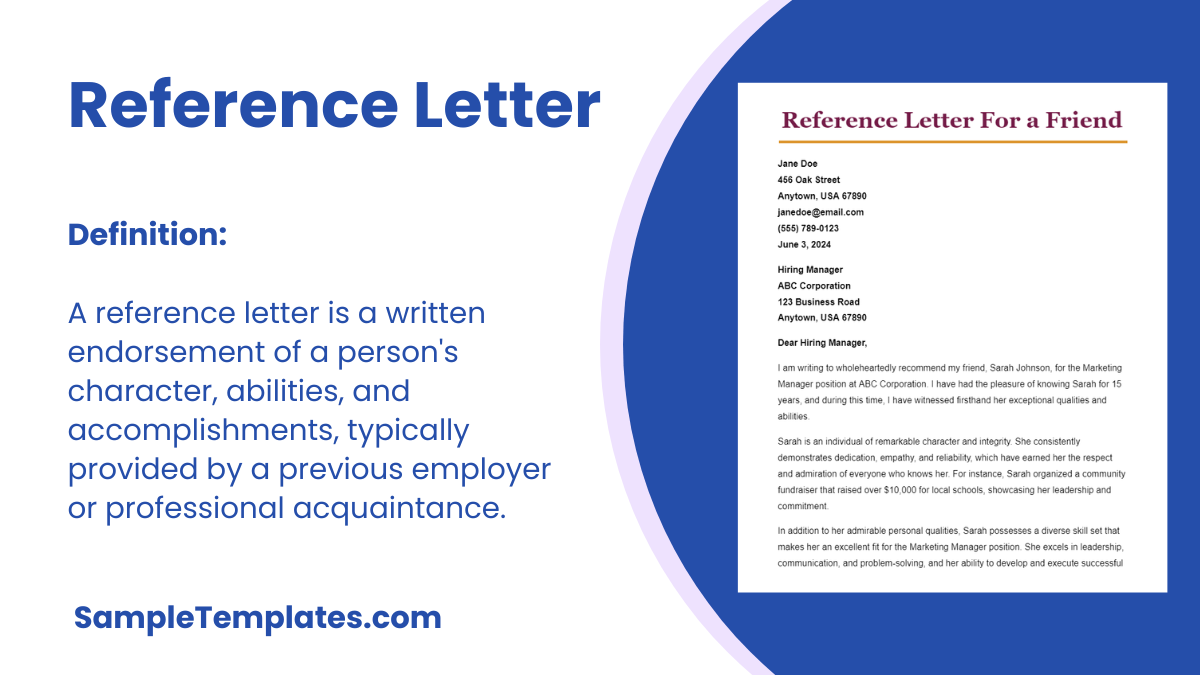In the professional world, references make a great difference. A reference is one where somebody gives a good recommendation of another person who he knew professionally. This can help the second person to secure a better employment opportunity that what he is engaged into currently. Writing such formats can be quite tough. The reference letter template that comes in the format of word, excel and pdf can be downloaded for help. Here in we will be taking a look at some of the formats of reference letters that can be used. You may check Manager Reference Letter.
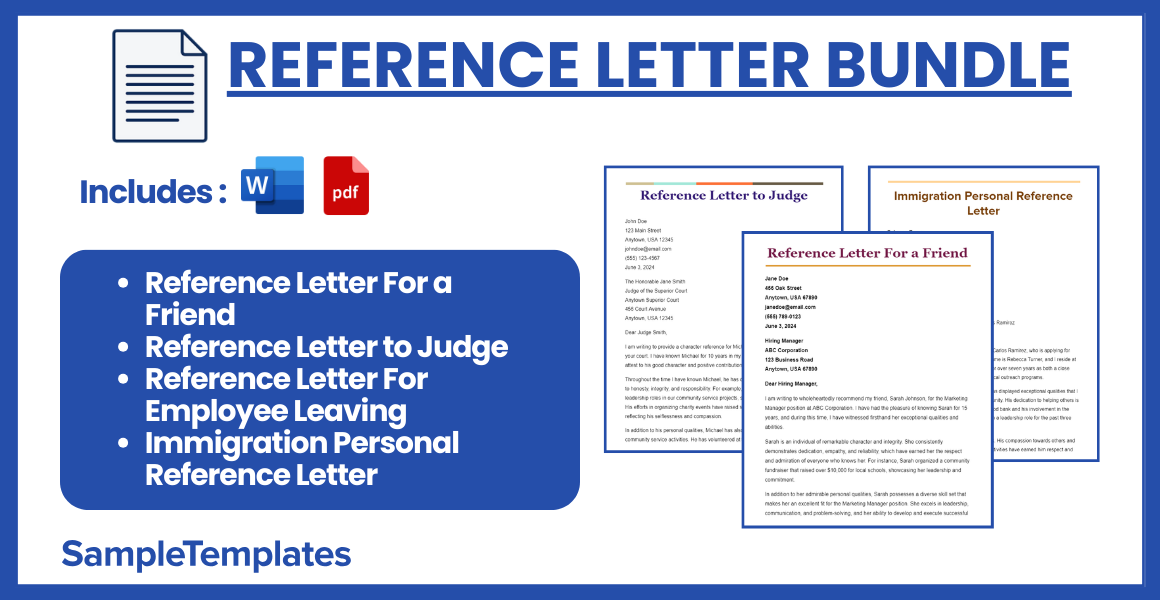
Download Reference Letter Bundle
Reference Letter For a Friend
Jane Doe
456 Oak Street
Anytown, USA 67890
[email protected]
(555) 789-0123
June 3, 2024
Hiring Manager
ABC Corporation
123 Business Road
Anytown, USA 67890
Dear Hiring Manager,
I am writing to wholeheartedly recommend my friend, Sarah Johnson, for the Marketing Manager position at ABC Corporation. I have had the pleasure of knowing Sarah for 15 years, and during this time, I have witnessed firsthand her exceptional qualities and abilities.
Sarah is an individual of remarkable character and integrity. She consistently demonstrates dedication, empathy, and reliability, which have earned her the respect and admiration of everyone who knows her. For instance, Sarah organized a community fundraiser that raised over $10,000 for local schools, showcasing her leadership and commitment.
In addition to her admirable personal qualities, Sarah possesses a diverse skill set that makes her an excellent fit for the Marketing Manager position. She excels in leadership, communication, and problem-solving, and her ability to develop and execute successful marketing campaigns is truly impressive. I have no doubt that Sarah will bring the same level of excellence and dedication to ABC Corporation.
One of the most notable aspects of Sarah’s character is her unwavering commitment to helping others. She has been actively involved in volunteer work at the local food bank, demonstrating her genuine desire to make a positive impact. This sense of responsibility and compassion is just one of the many reasons why Sarah stands out as an exceptional individual.
I am confident that Sarah will be an asset to ABC Corporation and will excel in the Marketing Manager position. She has my highest recommendation, and I firmly believe that she will exceed your expectations.
Please feel free to contact me at (555) 789-0123 or [email protected] if you require any further information.
Sincerely,
Jane Doe
Marketing Director
[email protected]
(555) 789-0123
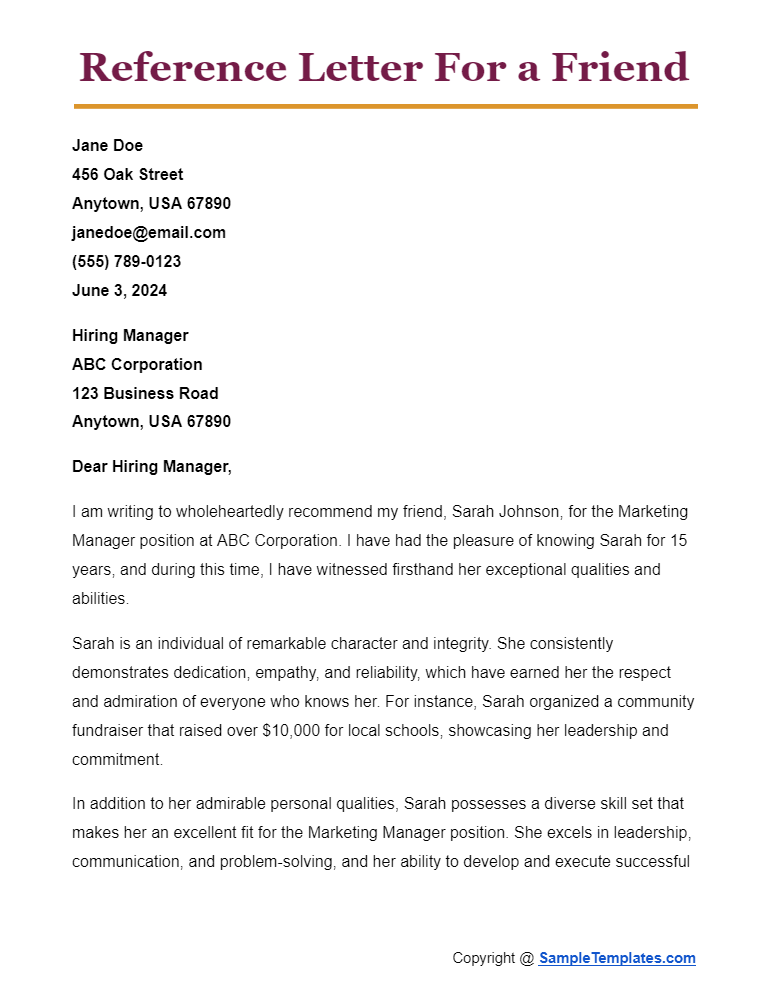
Reference Letter to Judge
John Doe
123 Main Street
Anytown, USA 12345
[email protected]
(555) 123-4567
June 3, 2024
The Honorable Jane Smith
Judge of the Superior Court
Anytown Superior Court
456 Court Avenue
Anytown, USA 12345
Dear Judge Smith,
I am writing to provide a character reference for Michael Brown, who is currently before your court. I have known Michael for 10 years in my capacity as his employer, and I can attest to his good character and positive contributions to our community.
Throughout the time I have known Michael, he has demonstrated a strong commitment to honesty, integrity, and responsibility. For example, Michael has consistently taken on leadership roles in our community service projects, showing reliability and dedication. His efforts in organizing charity events have raised significant funds for local shelters, reflecting his selflessness and compassion.
In addition to his personal qualities, Michael has also been involved in various community service activities. He has volunteered at the local food bank every weekend for the past five years, helping to distribute food to those in need. This involvement further underscores his genuine desire to contribute positively to society.
I understand the seriousness of the charges against Michael and do not seek to diminish the gravity of the situation. However, I believe that he has learned from this experience and is committed to making amends. Michael has expressed deep remorse for his actions and is determined to take the necessary steps to rectify the situation.
Your Honor, I respectfully ask for your consideration of Michael’s character and potential for rehabilitation when making your decision. I firmly believe that he will use this opportunity to become a better person and continue to contribute positively to our community.
Thank you for your time and consideration.
Sincerely,
John Doe
Manager, Community Services
[email protected]
(555) 123-4567
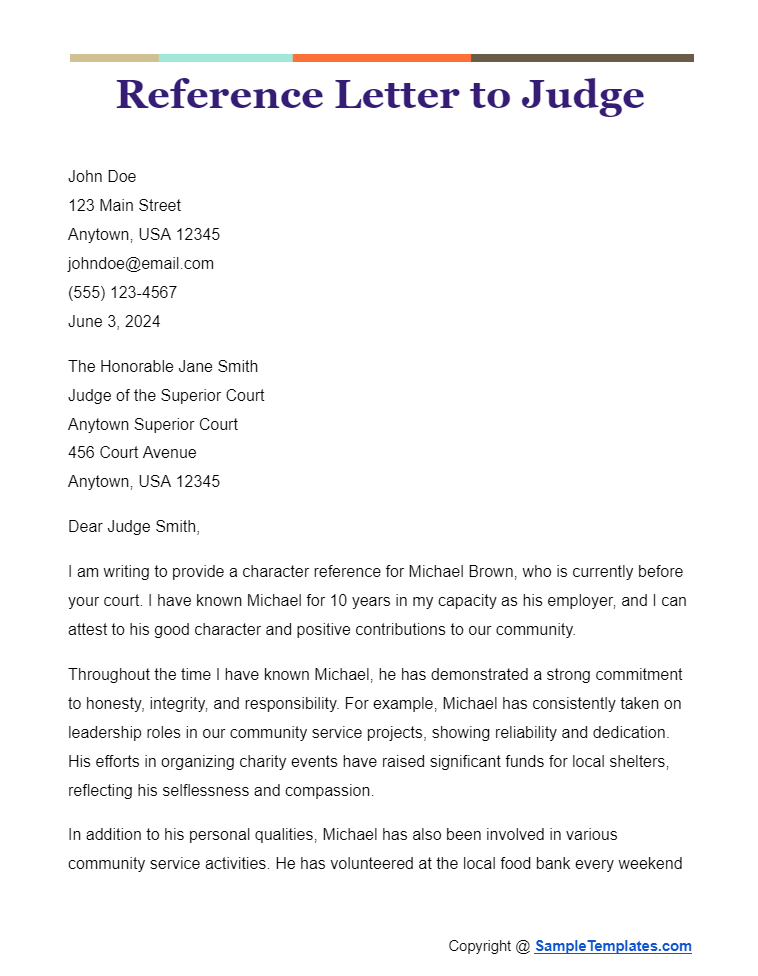
Reference Letter For Employee Leaving
Natalie Portman
Chief Financial Officer
Star Enterprises
2345 Galaxy Way
Space City, Cosmos, 10101
[email protected]
(345) 678-9012
April 4, 2024
To Whom It May Concern:
I am writing to recommend Ethan Hunt, who has served as an Accountant at Star Enterprises for over five years, from January 2019 to April 2024. During his tenure, Ethan has consistently exhibited a high level of professionalism, accuracy in his work, and a deep understanding of complex financial systems.
Ethan was responsible for managing our corporate accounts, overseeing annual budgeting processes, and providing strategic financial analyses that significantly contributed to our company’s financial health and growth. His expertise in financial software and his analytical skills have played a pivotal role in streamlining our accounting processes.
Beyond his technical skills, Ethan’s reliability and ethical standards have set a benchmark in our finance department. He has been a team player, always willing to share his knowledge and mentor junior staff. Ethan’s positive attitude and commitment to excellence have been infectious, fostering a collaborative and productive work environment.
While we are sad to see him go, we understand Ethan’s desire to pursue new challenges and opportunities. He leaves with our highest recommendation. Ethan would be an asset to any organization, bringing with him a wealth of experience, dedication, and professionalism.
Should you require any further information or wish to discuss Ethan’s contributions to Star Enterprises in more detail, please do not hesitate to contact me at (345) 678-9012 or [email protected].
Sincerely,
Natalie Portman
Chief Financial Officer
Star Enterprises
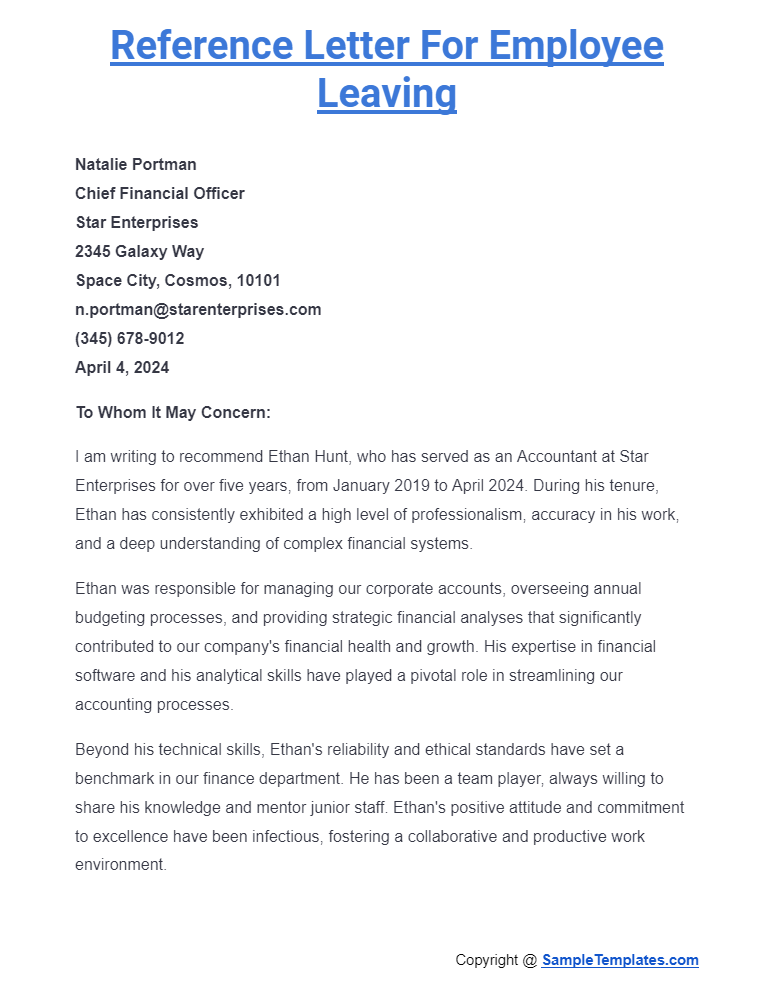
Immigration Personal Reference Letter
Rebecca Turner
950 Oak Street, Apartment 5B
Chicago, IL, 60610
[email protected]
312-555-7890
May 23, 2024
U.S. Citizenship and Immigration Services
[Office Address or P.O. Box]
Chicago, IL, 60610
Subject: Personal Reference Letter for Mr. Carlos Ramirez
Dear Sir/Madam,
I am writing to offer a personal reference for Mr. Carlos Ramirez, who is applying for permanent residency in the United States. My name is Rebecca Turner, and I reside at the address noted above. I have known Carlos for over seven years as both a close friend and a community collaborator in various local outreach programs.
Throughout the time I have known him, Carlos has displayed exceptional qualities that I believe make him a valuable asset to any community. His dedication to helping others is evident through his volunteer work at the local food bank and his involvement in the city’s annual charity drive, where he has taken on a leadership role for the past three years.
Carlos is a person of great integrity and kindness. His compassion towards others and his proactive attitude in supporting community activities have earned him respect and admiration from all who know him. He is reliable, trustworthy, and consistently seeks ways to contribute positively to those around him.
I firmly believe that granting Carlos permanent residency status would not only enrich his life but also benefit our community significantly. His continuous efforts to improve the lives of others and his commitment to civic engagement are just a few of the reasons why I support his application wholeheartedly.
Thank you for considering this reference as part of his application. I am confident in his character and his desire to make a positive impact. Please feel free to contact me at the phone number or email address provided above should you require further information or wish to discuss his application in more detail.
Sincerely,
Rebecca Turner
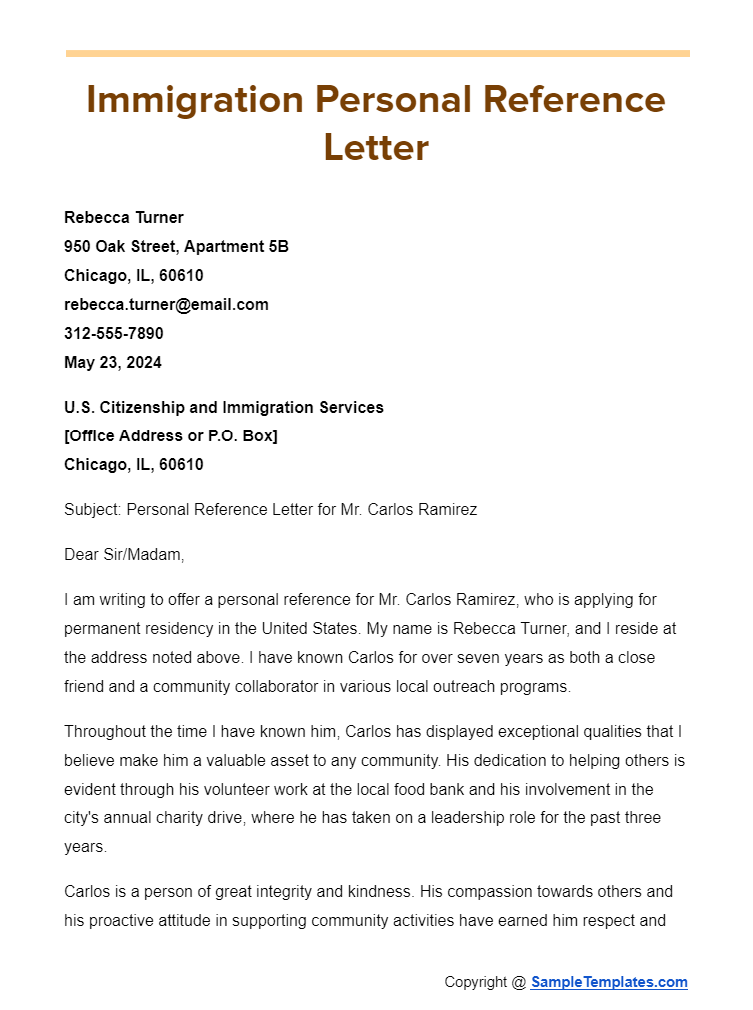
Browse More Templates On Reference Letter
Character Reference Letters for Court Example Template
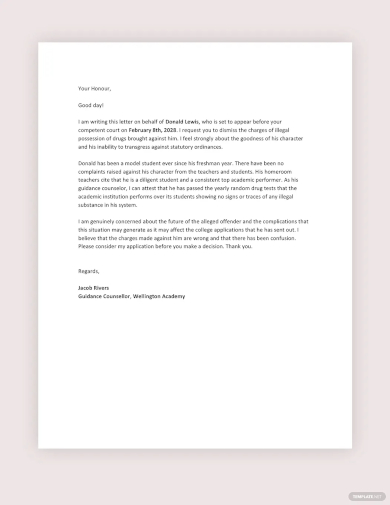
Sample Adoption Reference Letter Template
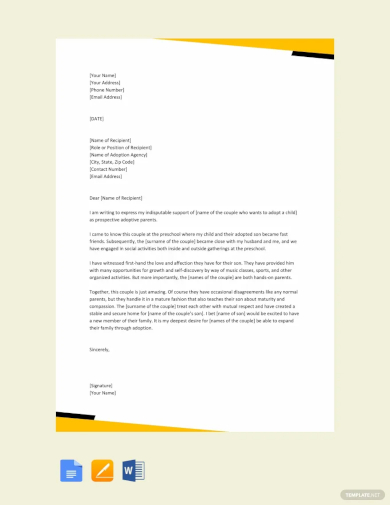
Immigration Reference Letter for a Family Member Template
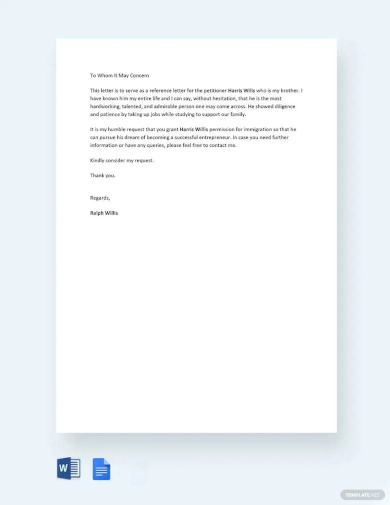
Sample Family Reference Letter for School Application Template
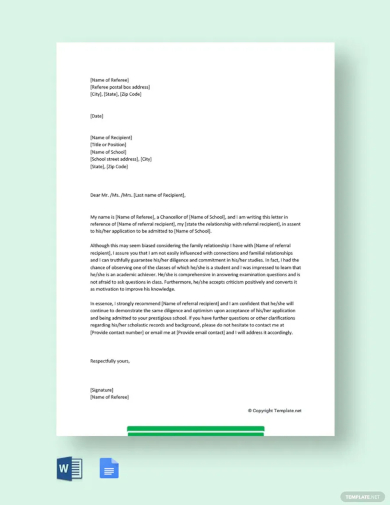
Nurse Practitioner Reference Letter Template
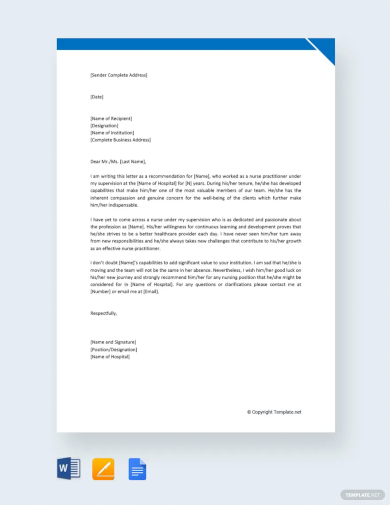
How to Write a Reference Letter?
Writing a reference letter involves providing an honest and positive assessment of someone’s skills, character, and accomplishments. Here’s a step-by-step guide to help you write an effective reference letter:
Step-by-Step Guide to Writing a Reference Letter
- Start with the Basics:
- Include your contact information at the top: your name, address, phone number, and email address.
- Include the date of writing.
- Add the recipient’s contact information below yours: their name, title, company, and address.
- Salutation:
- Address the letter to a specific person if possible (e.g., “Dear Mr. Smith”). If you don’t know the name, use a general greeting like “To Whom It May Concern.”
- Introduce Yourself:
- Briefly introduce yourself and your relationship to the person you’re recommending. Mention how long you have known them and in what capacity (e.g., as a colleague, supervisor, teacher, etc.).
- State the Purpose:
- Clearly state that you are writing to recommend the person for a specific position, opportunity, or program.
- Describe the Person’s Qualities and Achievements:
- Highlight the individual’s strengths, skills, and accomplishments. Provide specific examples to illustrate these qualities. Focus on traits that are relevant to the position or opportunity they are seeking.
- Include Personal Attributes:
- Mention personal qualities such as integrity, reliability, and work ethic. Explain how these attributes make the person a strong candidate.
- Provide a Strong Recommendation:
- Clearly state your recommendation. Use strong, confident language to endorse the person.
- Offer to Provide Additional Information:
- Offer to be contacted for further information or to answer any questions about the candidate.
- Close the Letter:
- End with a polite closing statement (e.g., “Sincerely,” “Best regards”).
- Sign your name and type it below the signature line.
Character Reference Letter Template
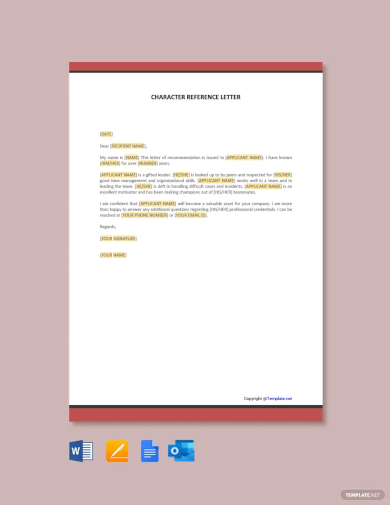
Sample Bank Reference Letter Template
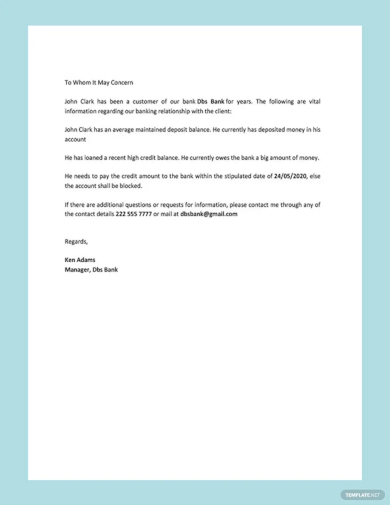
Professional Reference Letter For Nurse Template
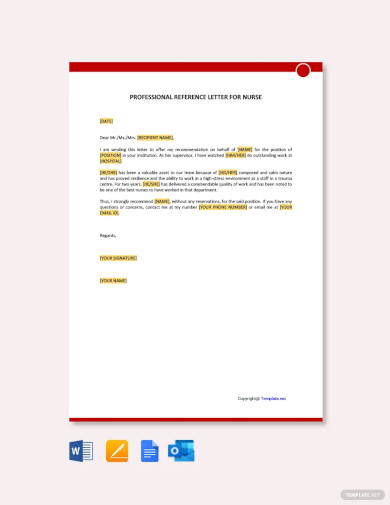
Bank Reference Letter for Company Template
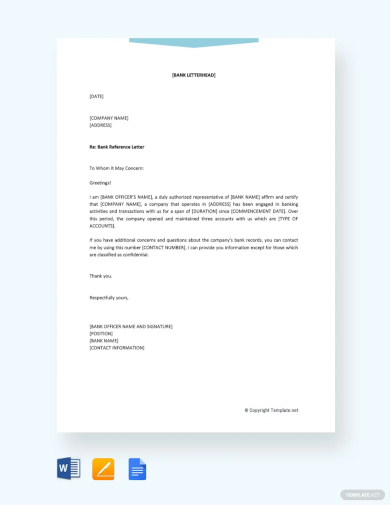
Sample Rental Reference Letter from Friend Template
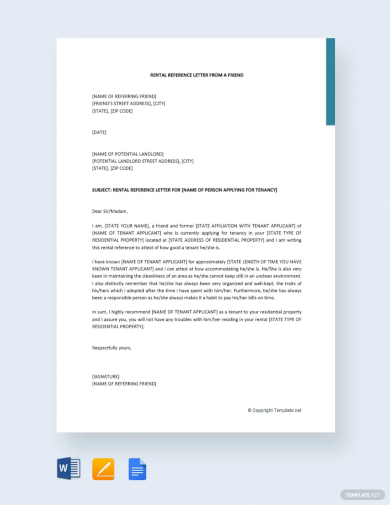
Volunteer Reference Letter For Student Template
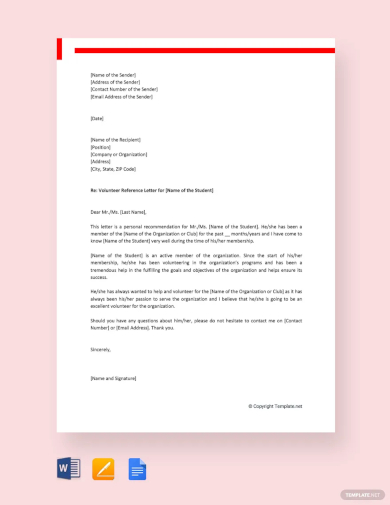
Types of Reference Letter
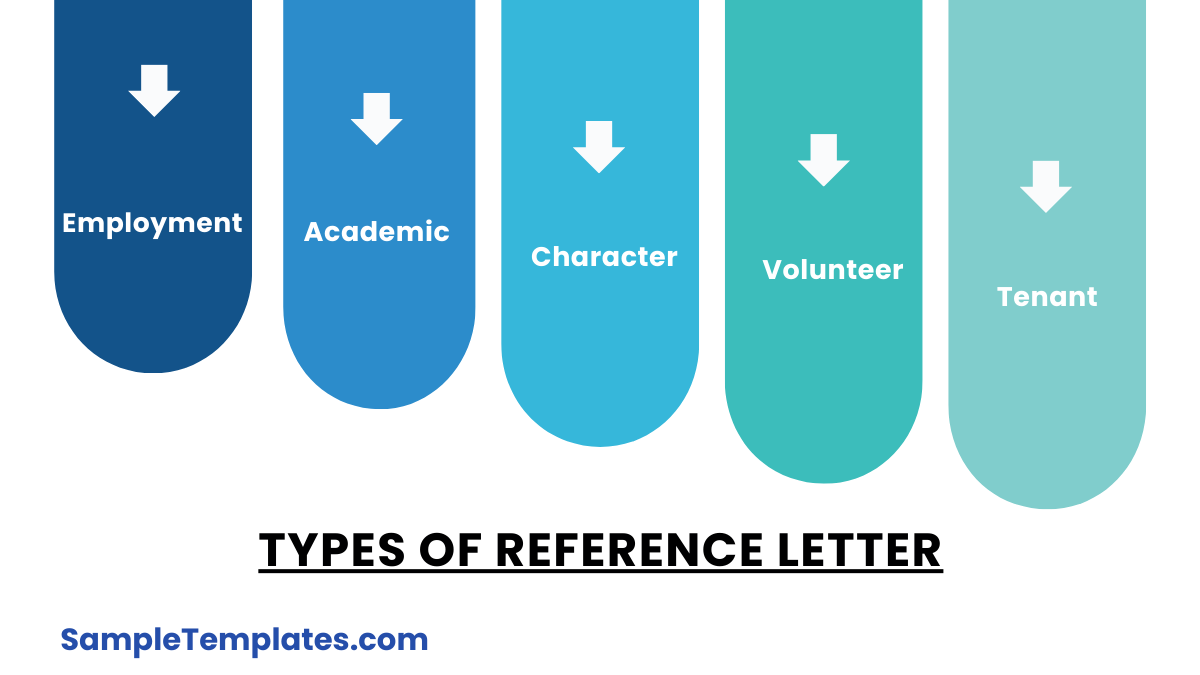
There are several types of reference letters, each serving a specific purpose depending on the context in which it is needed. Here are the main types:
1. Employment Reference Letter:
- Purpose: To recommend a person for a job based on their work experience, skills, and professional qualities.
- Commonly Written By: Former or current employers, supervisors, or colleagues.
- Example Use: “Jane Doe has been an exceptional team member at our company, demonstrating outstanding leadership and problem-solving skills.”
2. Academic Reference Letter:
- Purpose: To support a student’s application for a program, scholarship, or academic position based on their academic performance and potential.
- Commonly Written By: Teachers, professors, or academic advisors.
- Example Use: “John Smith has consistently shown exceptional analytical abilities and dedication in his coursework, making him an ideal candidate for the graduate program.”
3. Character Reference Letter:
- Purpose: To vouch for a person’s character and personal qualities, often used in legal situations or for personal references.
- Commonly Written By: Friends, family members, community leaders, or acquaintances.
- Example Use: “Mary Johnson is a person of high integrity and compassion, always willing to help others in our community.”
4. Professional Reference Letter:
- Purpose: To recommend a person for professional opportunities, such as freelance projects or consulting roles, based on their professional expertise and experience.
- Commonly Written By: Clients, colleagues, or business associates.
- Example Use: “Alex Brown has provided exceptional consulting services to our company, significantly improving our operational efficiency.”
5. Tenant Reference Letter:
- Purpose: To recommend a tenant based on their rental history, reliability, and behavior as a tenant.
- Commonly Written By: Previous landlords or property managers.
- Example Use: “Emily White has been a responsible and respectful tenant, always paying rent on time and maintaining the property well.”
6. Immigration Reference Letter:
- Purpose: To support an individual’s application for immigration or visa based on their character, employment, or academic status.
- Commonly Written By: Employers, colleagues, teachers, or friends.
- Example Use: “Carlos Gonzalez has been a dedicated employee at our company, contributing significantly to our team with his expertise and work ethic.”
7. Volunteer Reference Letter:
- Purpose: To recommend a person for volunteer positions or to support their volunteer experience for other applications.
- Commonly Written By: Volunteer coordinators, supervisors, or leaders of organizations where the person volunteered.
- Example Use: “Sarah Lee has volunteered with our organization for three years, demonstrating exceptional commitment and a positive attitude in all her activities.”
Each type of reference letter focuses on different aspects of the individual’s qualifications and character, tailored to the specific needs of the situation.
Pastoral Reference Letter for Teacher Template
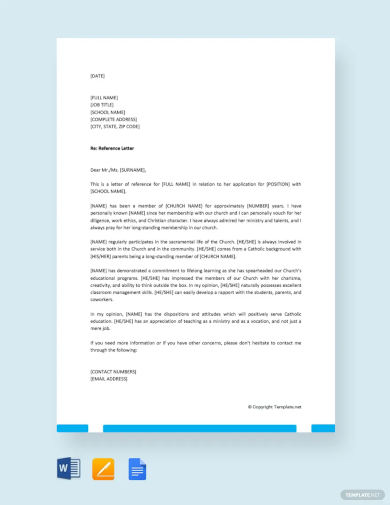
Sample Rental Reference Letter from Employer Template
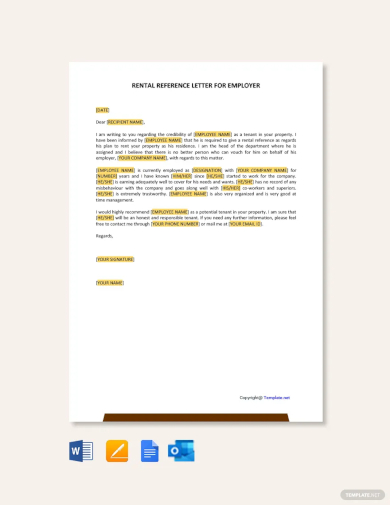
Personal Reference Letter For Landlord Template
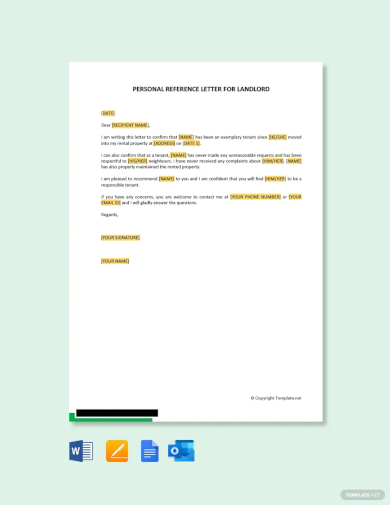
Business Reference Letter Template
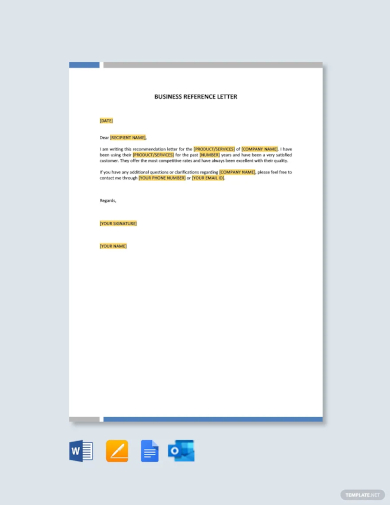
Sample Child Care Reference Letter Template
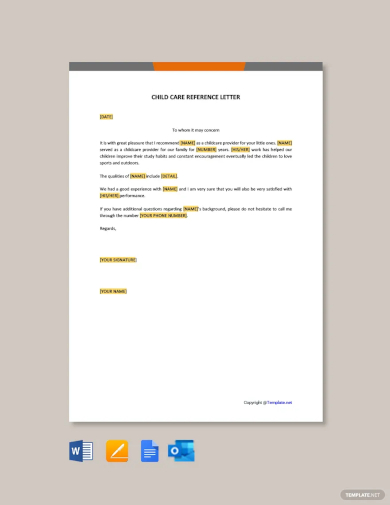
Financial Reference Letter From Accountant Template
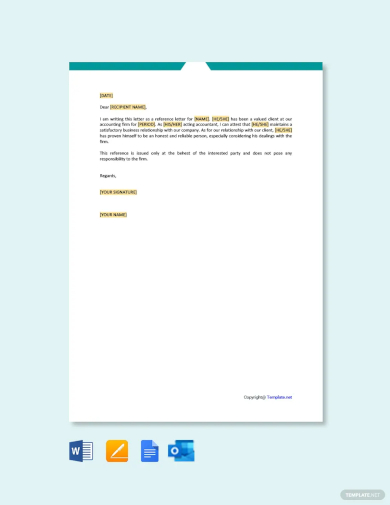
Reference Letter for School Admission Template
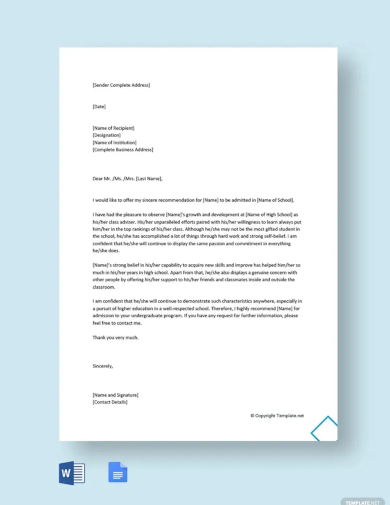
Sample Rental Reference Letter Template
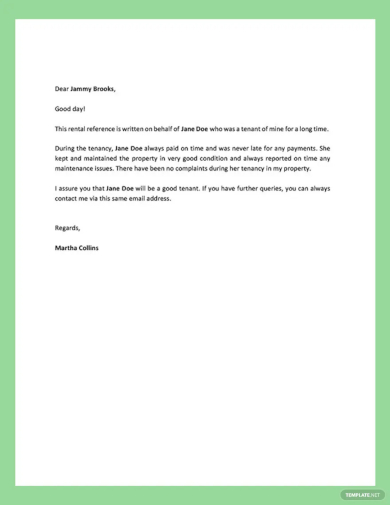
Apartment Rental Reference Letter Template
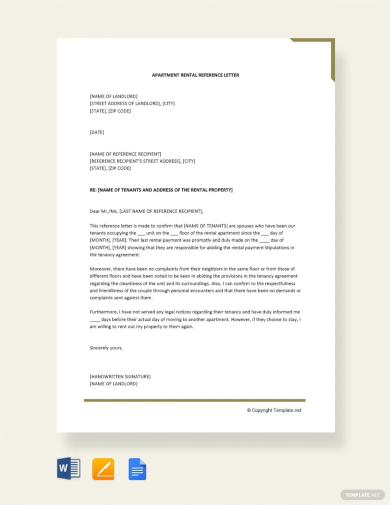
Basic Employment Reference Letter Template
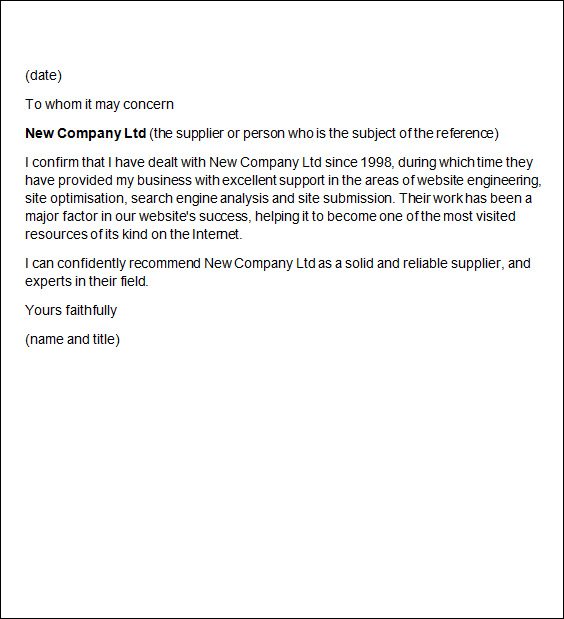
This is a reference letter template that can be use for a company and not for any individual. The first and the most important thing that we learn here is that reference letters sample are needed not just by employees but also by companies in the process of securing new clients and customers.
Reference Letter For Teacher Template
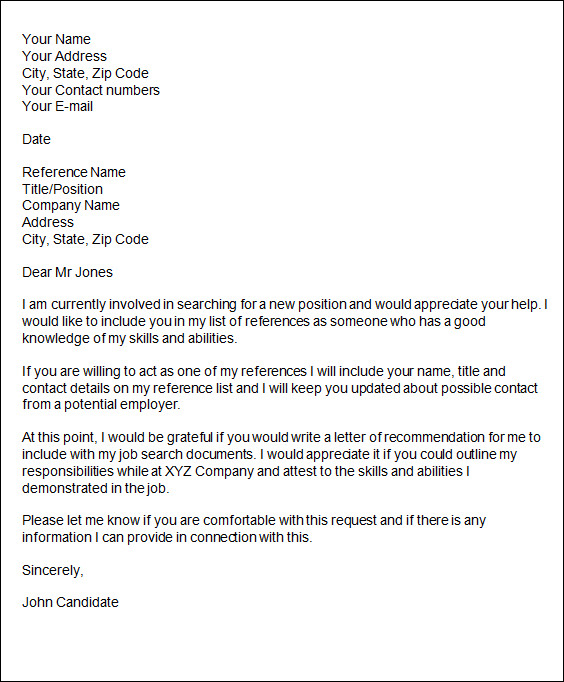
The format of this letter clearly explains that is this is a formal letter from a person who will need a reference check. This is a formal permission letter format where the person is asking for permission from another person who will give recommendations for the first person. This is a template that can be downloaded in the excel format.
Sample Reference Templates For Employee Template
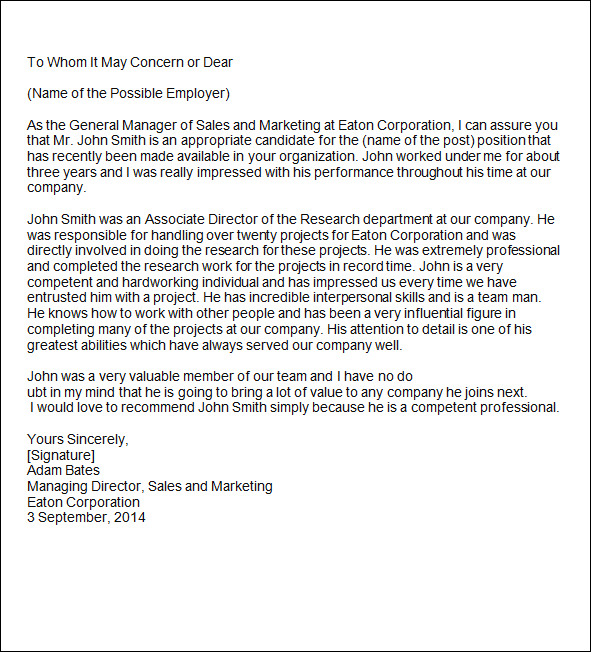
This is a reference letter template that is ideal for a reference letter creation. The template supports paragraph style of writing letter and also that this is a template that is fully editable and comes with a great resolution range for great printout quality.
Importance of Reference Letter
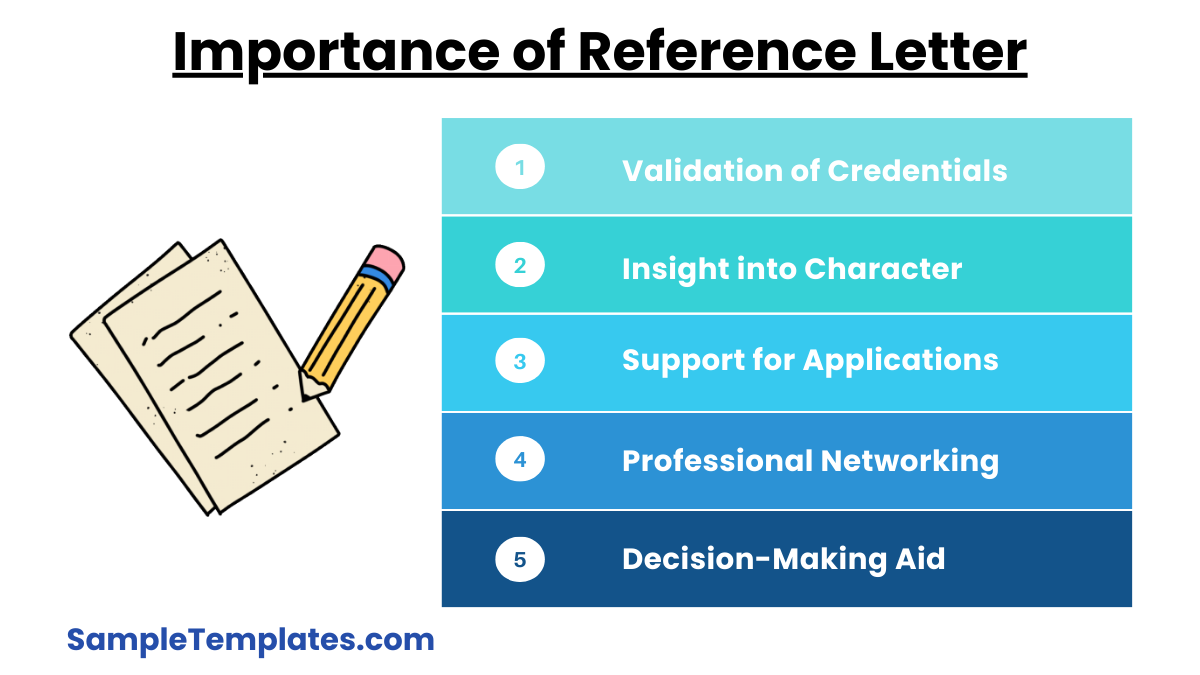
A reference letter outline holds significant importance in various contexts, providing a detailed and credible endorsement of an individual’s qualifications, character, and abilities. Here are some key reasons why reference letters are important:
1. Validation of Credentials:
- Authenticates Claims: Confirms the individual’s qualifications, skills, and experiences stated in resumes, applications, or interviews.
- Enhances Credibility: Adds weight to the individual’s application by providing third-party validation from a credible source.
2. Insight into Character:
- Personal Endorsement: Offers a glimpse into the individual’s personality, work ethic, and interpersonal skills.
- Holistic View: Provides a well-rounded perspective beyond what is visible on paper, highlighting qualities like integrity, reliability, and teamwork.
3. Support for Applications:
- Job Applications: Strengthens job applications by providing employers with positive insights about the candidate’s previous work performance and potential fit within the company.
- Academic Admissions: Supports students’ applications for programs, scholarships, or research positions by highlighting academic achievements and potential.
- Immigration and Legal Matters: Provides character references in legal situations or supports immigration applications by endorsing the individual’s character and contributions.
4. Professional Networking:
- Strengthens Connections: Maintains and strengthens professional relationships between the recommender and the individual.
- Future Opportunities: Opens doors for future opportunities and collaborations by establishing a network of trusted endorsements.
5. Decision-Making Aid:
- Employer’s Tool: Assists employers in making informed hiring decisions by providing additional context about the candidate’s abilities and fit for the role.
- Selection Committees: Aids selection committees in evaluating candidates for academic programs, grants, or professional awards by offering detailed insights.
6. Boosts Confidence:
- Positive Reinforcement: Encourages and boosts the confidence of the individual receiving the reference, affirming their strengths and capabilities.
- Motivation: Serves as a motivational tool, recognizing and appreciating the individual’s hard work and achievements.
7. Legal and Professional Requirements:
- Compliance: Fulfills requirements for certain applications or professional accreditations where reference letters are mandatory.
- Documentation: Provides official documentation supporting the individual’s suitability for a particular role or program.
8. Highlighting Specific Skills and Achievements:
- Detailed Assessment: Offers a platform to highlight specific skills, achievements, and contributions that may not be fully covered in sample resumes or interviews.
- Contextual Examples: Provides specific examples and anecdotes that illustrate the individual’s capabilities and impact.
By offering a detailed and credible endorsement, reference letters play a crucial role in supporting an individual’s application and helping decision-makers evaluate their suitability for various opportunities.
Character Reference Letter Example
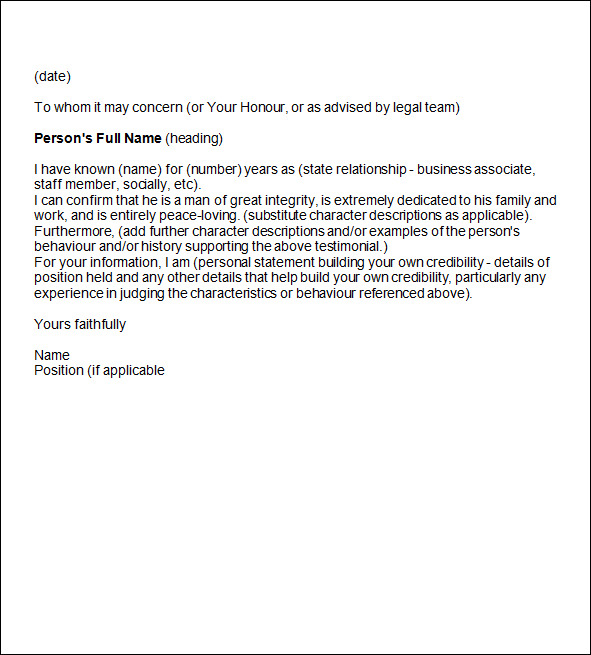
This is a design that can give a great support to a character sample certificate or reference letter. The design of this template supports a paragraph style of writing. This is a letter format that can be used by schools and also for business and the professional world.
Reference Letter For Student Template
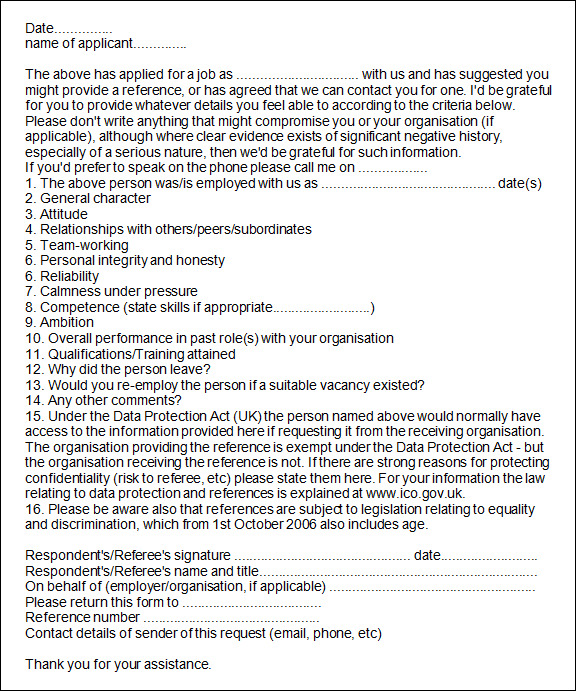
This is a template design that can be used by any company who is looking to conduct a reference check for a new employee form. This is a letter format that has all the attributes mentioned that needs to be satiated. The letter format has a very corporate and formal look and feel.
Formal Reference Letter Template
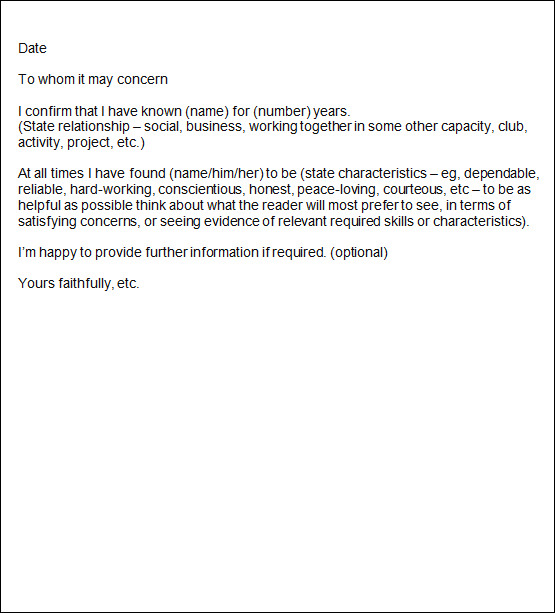
The design of the letter has certain literature review mentioned. However there are certain spaces left blank that can be edited as per requirement. The user here can feed in the name of the person who is giving the recommendation and also the name and the details of the person for whom the recommendation is being given.
Personal Reference Letter Template
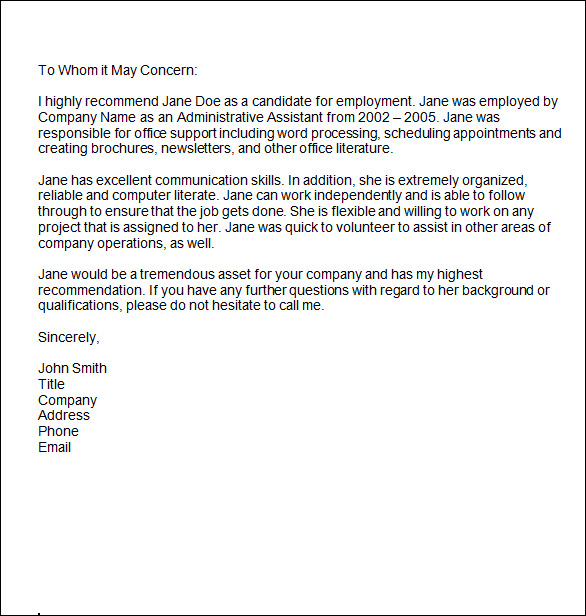
Highly suitable for an effective recommendation and a reference letter, users can download this letter in the sample form of word documents. This template has been provided with an array of great technical features and has a great resolution range for very good quality printouts. The entire template is editable and has superb responsive features.
Reference Letter Template
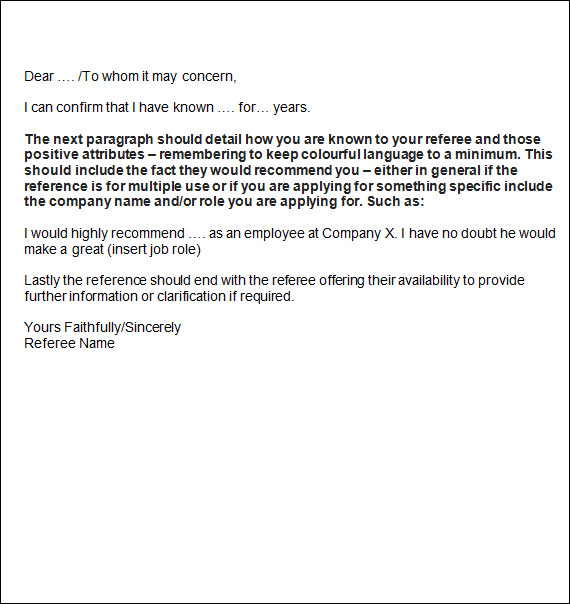
The layout of the current reference letter template has a personal touch. The frame of the letter provides not just an idea of the person about whom the recommendation is being given but at the same point the person giving the sample recommendation mentions that how does he know the person he is talking about. The template has a very neat and clean look.
Reference Letter Employment Template
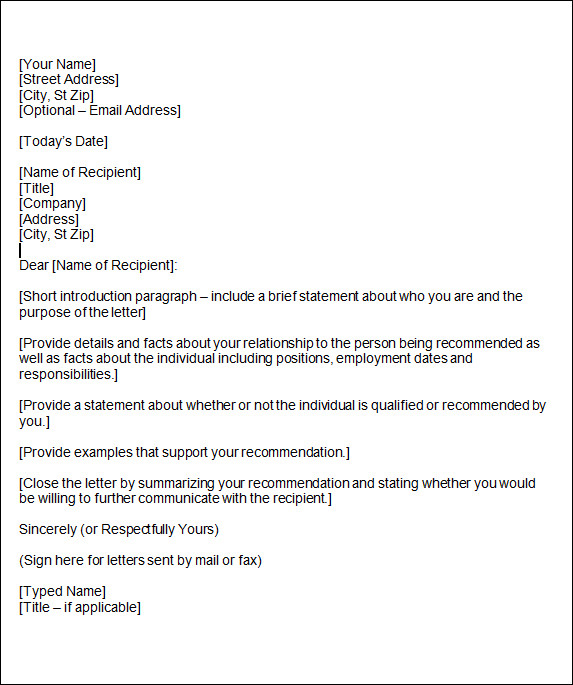
Very corporate and professional in its look and format, this is a design template that has a very formal and sober look. The template structure supports some of the basic information that is relevant for a reference letter. This is the reason that users, both employees and the employers can download this template for the purpose statement of making an impressive reference letter design.
Job Reference Letter Template
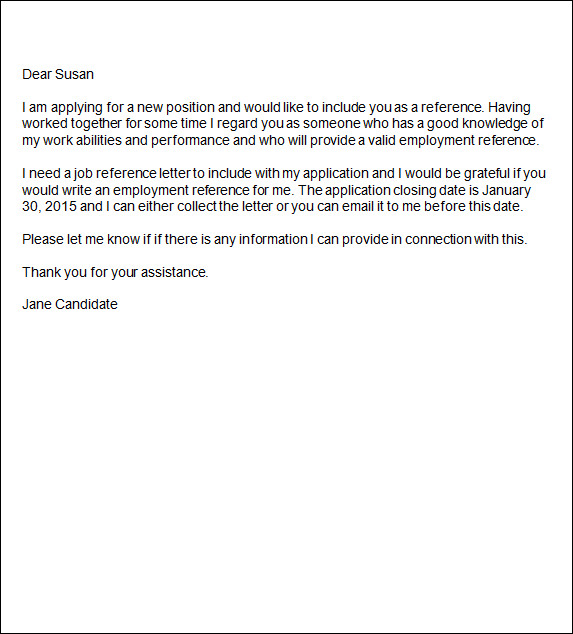
This is a format of a letter that can be sued to intimate a friend that a reference check is going to happen for which you need his or her help. The feel of the letter is very warm and yet formal. The language is smooth and simple. Reference letters are important documents that can add value to your career. Trust the reference letter template to create some of the most effective and impressive letters.
Reference Letter Format
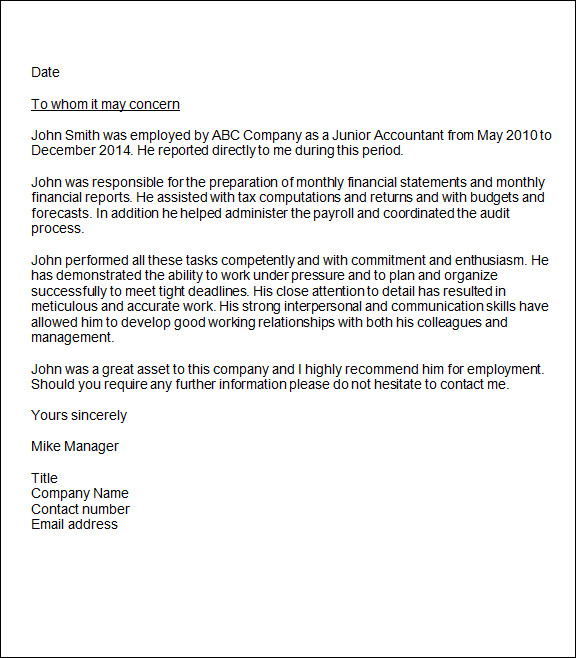
Standard Reference Letter Template
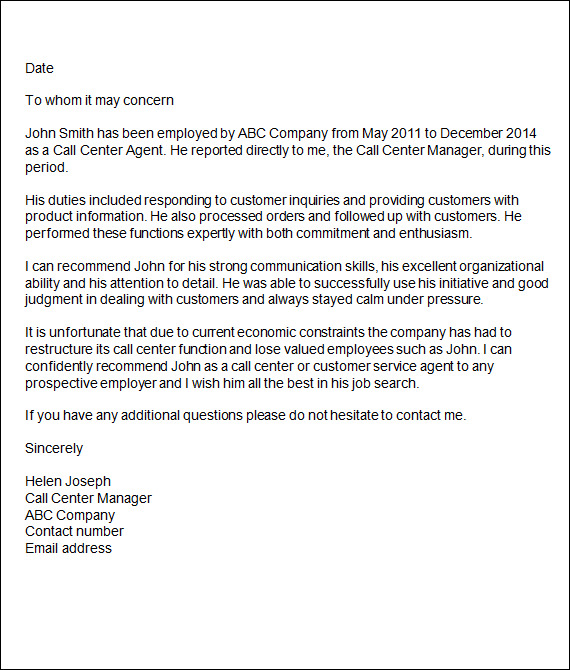
Printable Reference Letter Template
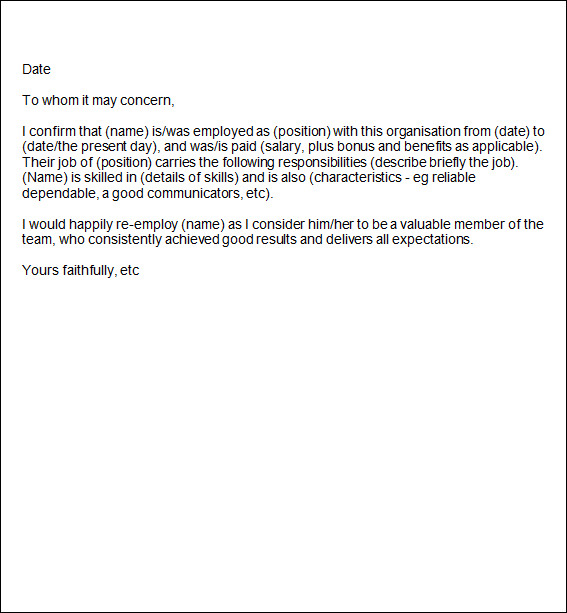
Character Reference Letter Template
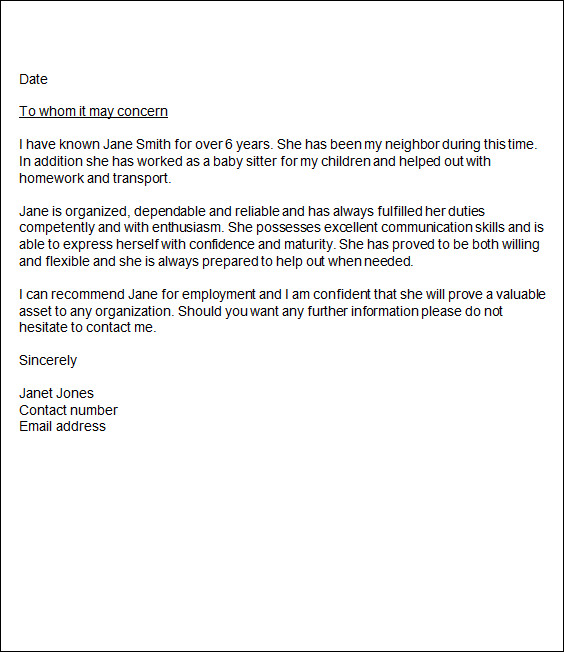
Academic Reference Letter Template
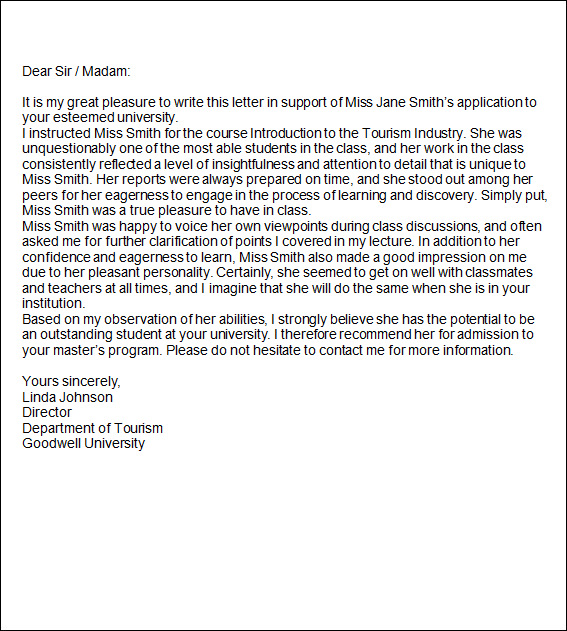
General Faculty Reference Letter Template
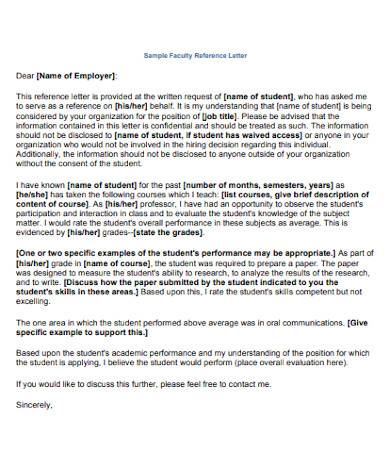
What do you write in a reference letter?
In a reference letter, write an introduction explaining your relationship with the individual, followed by their skills, achievements, and character traits. Provide specific examples to illustrate their qualifications and end with a strong recommendation and your contact information for further queries.
What is reference in a formal letter?
A reference in a formal letter is a statement or document provided by someone who knows the individual, detailing their qualifications, character, and achievements. It serves to endorse the individual’s suitability for a job, academic program, or other opportunity.
Can I write my own reference letter?
While you can draft a reference letter for someone to review and sign, it’s best practice for the recommender to write it themselves to ensure authenticity and credibility. Writing your own reference can be seen as unethical and may undermine the letter’s validity. you can also see more on Personal Reference Letter
What not to write in a reference letter?
Avoid including negative comments, unverified information, or irrelevant personal details. Do not exaggerate or fabricate achievements. Steer clear of discriminatory language and avoid mentioning any private or sensitive information that could harm the individual’s reputation.
How to start and end a reference letter?
Start: Address the recipient with a formal salutation (e.g., “Dear Hiring Manager”) and introduce yourself, explaining your relationship to the candidate. End: Conclude with a strong endorsement, an offer to provide further information, a polite closing statement (e.g., “Sincerely”), and your signature.
If you have any DMCA issues on this post, please contact us!
Related Posts
Resignation Letter for Medical Samples & Templates
Letter of Intent Samples & Templates
Letter of Intent for a Job Samples & Templates
Lease Proposal Letter Samples & Templates
Letter of Inquiry Samples & Templates
Character Reference Letter Samples & Templates
Claims Letter Samples & Templates
Response Letter Sample & Templates
Follow Up Letter Samples & Templates
Sample Project Proposal Letter Templates
Donation Letter Samples & Templates
Addressing a Formal Letter Samples & Templates
Grievance Letter Samples & Templates
Sample Sponsor Thank You Letter Templates
Sample Letters of Request
